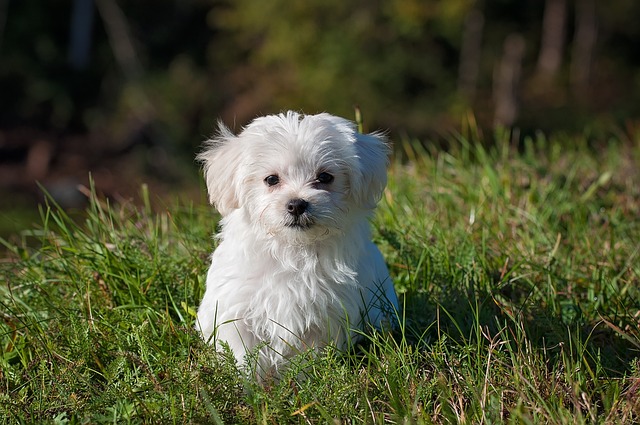Creating a pet-friendly home involves more than just providing food and water; it’s about ensuring that your living space is safe, comfortable, and welcoming for your furry companions. Whether you have a dog, cat, or other pets, making your home pet-friendly requires thoughtful planning and adjustments. Here’s a comprehensive guide to help you create an environment that both you and your pets will love.
1. Pet-Proof Your Home
Secure Hazardous Items
- Toxic Plants: Remove or place toxic plants (like lilies for cats or poinsettias for dogs) out of reach. Opt for pet-safe plants instead, such as spider plants or Boston ferns.
- Electrical Cords: Use cord protectors or keep cords hidden to prevent chewing. Pets may get tangled or electrocute themselves if they chew on cords.
- Household Cleaners: Store cleaning supplies in cabinets with child-proof locks to keep them away from curious pets.
Cover Trash Bins
- Secure Lids: Use trash cans with secure lids or place them inside cabinets to prevent your pets from rummaging through and eating potentially harmful substances.
2. Create a Safe Space
Designate a Pet Area
- Comfortable Bedding: Provide a dedicated space with a comfortable bed or blanket where your pet can retreat and relax.
- Toys and Accessories: Keep your pet’s toys, grooming tools, and other accessories organized in their area for easy access.
Safe Zones
- Pet Gates: Use gates to restrict access to areas where pets might not be safe, such as staircases or rooms with fragile items.
- Crate Training: A crate can offer a safe and secure space for your pet, especially for training purposes or when you need them to stay in one place.
3. Choose Pet-Friendly Furniture
Durable Materials
- Stain-Resistant Fabrics: Opt for fabrics that are resistant to stains and easy to clean. Microfiber and leather are good choices for homes with pets.
- Scratch-Resistant Surfaces: Choose furniture with surfaces that are less likely to be damaged by claws. Avoid delicate materials that are easily scratched or chewed.
Pet-Friendly Design
- Removable Covers: Furniture with removable and washable covers can make cleaning up pet hair and accidents much easier.
- Pet-Friendly Seating: Provide pet-friendly seating options, such as pet beds or cushions, to discourage pets from climbing on your furniture.
4. Keep Floors Pet-Friendly
Flooring Options
- Hardwood or Tile: These are easier to clean and more resistant to pet hair and accidents compared to carpets.
- Area Rugs: Use washable or easily cleanable area rugs that can be replaced if they become too worn or stained.
Grooming and Maintenance
- Regular Cleaning: Vacuum floors and upholstery frequently to remove pet hair and dander.
- Pet-Friendly Cleaning Products: Use cleaning products that are safe for pets to avoid any harmful residues.
5. Install Pet-Friendly Features
Pet Doors
- Convenient Access: Install a pet door to allow your pets to go in and out as needed without needing to ask for access.
Pet-Friendly Fixtures
- Water Stations: Set up multiple water stations around your home to keep your pets hydrated and encourage them to drink more.
- Feeding Stations: Use pet feeders that are easy to clean and refill. Elevated feeders can help reduce strain on your pet’s neck and joints.
6. Manage Pet Odors
Ventilation
- Air Purifiers: Use air purifiers with HEPA filters to reduce pet odors and dander in the air.
- Proper Ventilation: Ensure good ventilation by opening windows regularly to let fresh air circulate.
Odor-Control Products
- Deodorizers: Use pet-safe deodorizers to neutralize odors. Avoid products with strong fragrances that may irritate your pet’s sensitive nose.
- Baking Soda: Sprinkle baking soda on carpets and upholstery to absorb odors, then vacuum it up.
7. Create a Pet-Friendly Outdoor Space
Secure Yard
- Fencing: Ensure your yard is securely fenced to prevent pets from wandering off. Check for gaps or weaknesses in the fence regularly.
- Safe Plants: Choose pet-safe plants for your garden to prevent accidental ingestion of toxic plants.
Outdoor Activities
- Play Area: Set up an area in your yard with toys and activities to keep your pet entertained and active.
- Shelter: Provide a shaded or covered area for your pets to rest and stay cool during outdoor play.
8. Consider Pet-Friendly Decor
Choose Durable Decor
- Pet-Friendly Materials: Opt for decor items made from durable materials that can withstand the wear and tear of pet activity.
- Easy-to-Clean Surfaces: Select decor that is easy to clean and maintain, avoiding items that can easily get damaged by claws or accidents.
Design for Safety
- Avoid Small Items: Keep small decorative items out of reach to prevent choking hazards if your pet chews or swallows them.
- Secure Heavy Items: Anchor heavy items or furniture to the wall to prevent them from tipping over if your pet accidentally bumps into them.
9. Establish Pet-Friendly Routines
Regular Exercise
- Daily Walks: Ensure your pet gets regular exercise through daily walks or playtime to keep them physically and mentally stimulated.
- Interactive Toys: Provide interactive toys and puzzles to engage your pet’s mind and reduce boredom.
Health and Wellness
- Regular Check-Ups: Schedule regular veterinary check-ups to monitor your pet’s health and address any issues early.
- Grooming: Keep up with grooming needs, including brushing, nail trimming, and bathing, to maintain your pet’s hygiene.
10. Prepare for Emergencies
Emergency Kit
- First-Aid Supplies: Keep a pet-specific first-aid kit with essentials such as bandages, antiseptic wipes, and a thermometer.
- Emergency Contacts: Have contact information for your veterinarian and an emergency animal clinic readily available.
Safe Spaces
- Emergency Plan: Develop a plan for your pets in case of emergencies, such as natural disasters or home evacuations, and ensure all family members are familiar with it.




